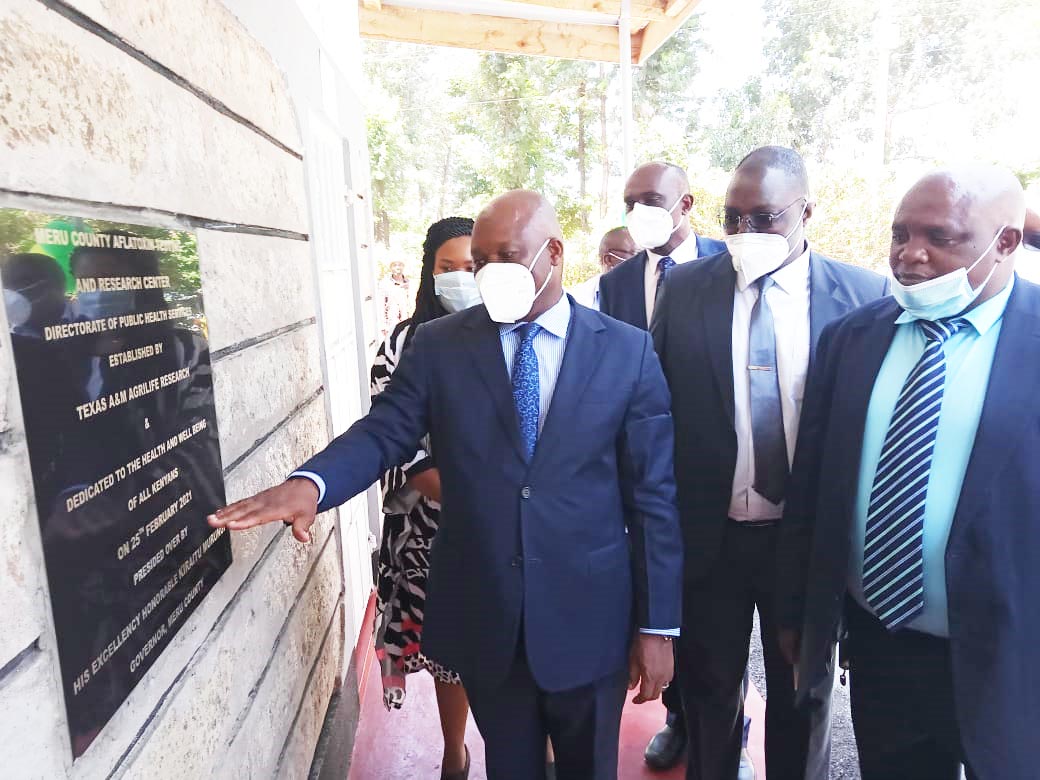By John Majau
Meru County Government has launched an aflatoxin testing laboratory at Kinoru Dispensary to area residents from consuming the fungal toxins.
Aflatoxin is feared to be one of the causes of increased cancer cases in the region and the country at large.
The lab was launched five years after a study done by Texas A & M AgriLife Research in 2016 revealed that maize was contaminated with Aflatoxin in the county.
Buuri and Imenti South sub-counties topped the list of the areas that farm produce was most affected by aflatoxin.
Texas A & M AgriLife Research organization provided testing services to ensure food safety and quality.
The lab will provide testing services to farmers, traders, millers, among other stakeholders along the grains and pulses value chain.
The laboratory will also test all mycotoxins that exist in grain and other foods.
Speaking during the launch of the laboratory dubbed as Meru County Testing Public Health Lab and Research Center, Meru County Secretary Dr. Rufus Miriti said they signed a five year deal with the research organization.
Miriti added that the County had assigned three quality control officers that will man the laboratory to secure safety of food products,
“We have three officers trained by A & M and they will provide services in our laboratory with the help of the organization,” Mr. Miriti said.
Miriti said the laboratory will reduce deaths related to people consuming aflatoxin contaminated foods.
According to Miriti the idea to set up the laboratory was induced by a report in 2016-2017 that revealed that Meru County had worrying numbers of cancer cases.
Public Health Chief Officer John Inanga said the laboratory will help prevent people from eating aflatoxin contaminated foods.
“We will collect samples during our surveillance in the field and test to prevent cancer and related diseases in every Sub-County because prevention is better than cure,” Inanga said.
Inanga cited a school in Meru where the public health officers had to order disposal of 60 bags full of contaminated food.
According to Inanga the resident will be charged a reasonable fee to test their food in the lab. The fee will be legally and fairly formulated by the County Assembly of Meru.
Anne Muiruri who represented A & M their research revealed that aflatoxin cases were high in Meru.
“We collected 650 samples in the nine sub-counties and we realized Meru has a big problem as cases of aflatoxin were widely identified,” Ms Muiruri said,
She added that most of the chronic diseases in the region could be as a result of aflatoxin contaminated food.
Dr. James Kirimi, Chief officer for Health said children were the most endangered by aflatoxin which leads to stunted growth.
Dr. Kirimi warned residents against consuming or feeding their animals with aflatoxin contaminated foods warning that it could lead to cancer.



